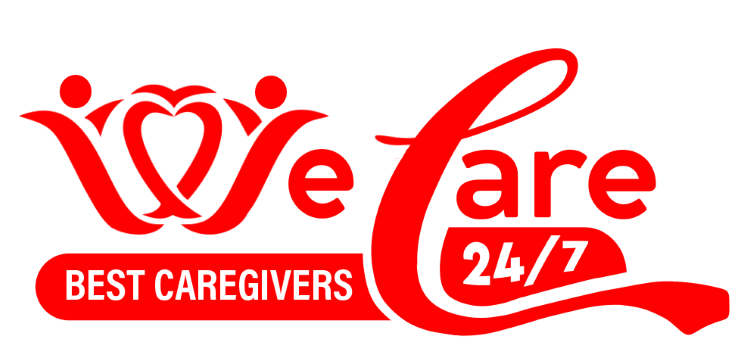Finding Support: Where New Jersey Parents Can Access Respite Care Options for Their Child

Recharging Caregivers: Essential Respite Care in the Garden State
Caregiving is a profound act of love and dedication, yet it is also an incredibly demanding role. For New Jersey parents and guardians caring for a child with special needs or disabilities, the responsibilities can be round-the-clock, often leading to physical, emotional, and financial strain. It is a journey that requires immense strength, but even the strongest caregivers need a break to recharge and maintain their own well-being.
This is where respite care becomes indispensable. Respite care provides temporary relief for primary caregivers, offering a safe and supportive environment for the individual being cared for. It is not about taking a vacation from your responsibilities; it is about sustaining your ability to provide high-quality care in the long term. For families across New Jersey, understanding the available respite options is the first step toward finding much-needed support.
Understanding the Profound Need for Respite Care
The daily demands of caregiving can be overwhelming. From managing complex medical needs and therapies to navigating educational systems and behavioral challenges, caregivers often put their own needs last. This relentless cycle can lead to caregiver burnout, characterized by exhaustion, stress, anxiety, depression, and a diminished sense of personal accomplishment.
Respite care offers a vital lifeline. It provides caregivers with an opportunity to attend to personal appointments, spend time with other family members, pursue hobbies, or simply rest. By stepping away, even for a short period, caregivers can return to their role with renewed energy and perspective, ultimately enhancing the quality of care they provide. It safeguards the caregiver’s health, strengthens family relationships, and promotes stability for everyone involved.
Diverse Respite Care Options Available Across New Jersey
New Jersey offers a spectrum of respite care services designed to meet varying needs, preferences, and circumstances. These options range from in-home support to community-based programs, ensuring that families can find a solution that best fits their unique situation.
In-Home Respite Care: Familiar Comfort, Professional Support
For many families, in-home respite care is the preferred choice. It allows the individual to remain in their familiar environment, maintaining routines and comfort, while a professional caregiver steps in. This option is particularly beneficial for individuals who may experience anxiety or disruption when their routine is altered or their surroundings change.
- Agency-Provided Caregivers: Agencies like WeCare Home Caregivers specialize in providing trained and compassionate professionals who can come into your home. These caregivers are vetted, background-checked, and often have specific training in caring for individuals with various disabilities, including developmental, intellectual, and physical challenges. They can assist with personal care, medication management, meal preparation, companionship, and engaging activities.
- Benefits of In-Home Respite: It offers unparalleled convenience, minimizes stress for the individual receiving care, and provides a personalized level of attention. Families can often schedule care based on their specific needs, whether it is for a few hours, a full day, or even overnight.
Community-Based Respite Programs: Engaging Environments
New Jersey also boasts a variety of out-of-home respite options that provide engaging and structured environments for individuals with disabilities. These programs often offer opportunities for socialization, skill-building, and recreational activities.
Day Programs and Socialization Centers
Many organizations offer day programs specifically designed for individuals with developmental or intellectual disabilities. These centers provide supervised activities, therapeutic services, and opportunities for peer interaction during daytime hours, allowing caregivers a consistent period of relief.
- Activities Often Include: Arts and crafts, music therapy, physical activities, community outings, and life skills training.
- Where to Find Them: Local non-profits, community recreation centers, and specialized agencies often run these programs. A great starting point for research is The Arc of New Jersey, which has county-level chapters offering various services, including day programs.
Residential and Overnight Respite Facilities
For caregivers needing a longer break, such as for a weekend or a few days, residential respite facilities offer supervised overnight stays. These facilities are equipped to provide care in a safe, structured, and often therapeutic environment.
- Specialized Care: Many residential facilities are staffed with professionals who can manage complex medical needs, behavioral challenges, and provide round-the-clock supervision.
- Limited Availability: Due to high demand, these options can sometimes have waiting lists. Early planning and inquiry are advisable.
Specialized Camps and Retreats
During school breaks and summer months, many organizations in New Jersey offer specialized camps for children and adults with disabilities. These camps provide a fun and enriching experience for participants while giving caregivers extended respite.
- Varied Programs: Camps can range from day camps to overnight residential camps, focusing on different activities like adaptive sports, arts, nature exploration, and social skill development.
- Resources: Organizations like the Children’s Specialized Hospital or local YMCA branches may offer or recommend such programs. Searching for ‘special needs camps New Jersey’ online can yield many results.
Emergency Respite Care: Support in Crisis
Sometimes, respite care is needed unexpectedly due to a caregiver’s sudden illness, family emergency, or other unforeseen circumstances. New Jersey does have provisions for emergency respite, though access might depend on the severity of the situation and the individual’s existing support network.
In such urgent cases, it is crucial to immediately contact the individual’s case manager if they have one, or reach out to relevant state agencies like the Division of Developmental Disabilities (DDD) for guidance on emergency support services.
Navigating Funding and Eligibility for Respite Care in New Jersey
Understanding how to pay for respite care is a significant concern for many families. New Jersey offers various programs and funding streams to assist eligible families. Eligibility often depends on the type of disability, age of the individual, and family income.
New Jersey Division of Developmental Disabilities (DDD)
For individuals 21 years and older with intellectual or developmental disabilities, the New Jersey Division of Developmental Disabilities (DDD) is a primary resource. DDD provides funding for a range of services, including in-home and community-based respite care, through various waivers and programs. To access DDD services, individuals must meet specific eligibility criteria, including a diagnosis of an intellectual or developmental disability that occurred before age 22, and functional limitations.
Families must apply to DDD and go through an eligibility determination process. Once eligible, individuals are assigned a Supports Coordinator who helps develop an Individualized Service Plan (ISP) and allocate funds for approved services, which can include respite.
PerformCare for Children’s Behavioral Health Services
For children and youth (up to age 21) with intellectual and developmental disabilities, and/or behavioral health challenges, PerformCare New Jersey is the single point of entry for the Children’s System of Care (CSOC). PerformCare can authorize services, including respite care, based on a comprehensive assessment of the child’s needs. Services are often individualized and can be provided in-home or through various community programs.
Families can initiate a referral to PerformCare by calling their toll-free number. A care manager will then work with the family to assess needs and connect them with appropriate services and funding. It’s important to be thorough in describing the caregiving demands and the need for respite during this assessment.
Medicaid and Managed Care Organizations (MCOs)
Many individuals with disabilities in New Jersey are eligible for Medicaid (NJ FamilyCare). Medicaid programs, particularly through Managed Care Organizations (MCOs), often cover home and community-based services, which can include respite care. The scope of services covered depends on the specific MCO plan and the individual’s needs assessment.
If your child is enrolled in NJ FamilyCare, contact your MCO directly to inquire about respite care benefits and how to access them. They can provide information on approved providers and the authorization process.
Private Insurance and Out-of-Pocket Options
While less common for dedicated respite, some private health insurance plans may cover aspects of skilled nursing or therapeutic services that could indirectly offer a form of respite if provided in the home. It is always advisable to check your specific policy details and discuss with your insurance provider.
For families who do not qualify for state-funded programs or prefer more flexibility, private pay for services like those offered by WeCare Home Caregivers is always an option. This allows for greater control over the type and frequency of care received, tailored precisely to family needs.
Local Grants and Non-Profit Organizations
Beyond state-funded programs, numerous local non-profit organizations and foundations in New Jersey offer grants or financial assistance specifically for families of individuals with disabilities. These grants may help cover the cost of respite care, adaptive equipment, or therapeutic services.
- Research Local Resources: Organizations like county disability services offices, local chapters of national disability associations (e.g., Autism New Jersey, Cerebral Palsy of New Jersey), and community foundations are excellent places to inquire about such opportunities.
- Networking: Joining parent support groups can also provide valuable information about lesser-known funding sources and community initiatives.
Key Considerations When Choosing Respite Care
Selecting the right respite care provider or program is a significant decision. Here are essential factors to consider to ensure a positive and safe experience for your child and peace of mind for you.
Provider Credentials and Experience
Whether choosing an in-home caregiver or a facility, verify their credentials, licenses, and experience. For in-home agencies like WeCare Home Caregivers, ensure their staff are thoroughly vetted, trained, and insured. For facilities, check their accreditation and regulatory compliance with the State of New Jersey.
Training in Specific Needs
Does the caregiver or program have specific training and experience relevant to your child’s needs? If your child has complex medical requirements, behavioral challenges, or communication differences, ensure the staff are proficient in managing these particular aspects.
Safety Protocols and Emergency Preparedness
Inquire about the provider’s safety protocols, including emergency procedures, first aid/CPR certification, and how they handle unforeseen situations. A reputable provider will have clear and robust safety measures in place.
Compatibility and Comfort
For in-home care, a personal connection is vital. Ideally, you should have the opportunity to meet and interview potential caregivers to ensure a good fit with your child’s personality and your family’s dynamics. For programs, assess the environment and observe interactions to gauge if it feels like a comfortable and engaging place for your child.
Flexibility and Availability
Consider the provider’s flexibility in scheduling and their availability. Do they offer the hours or frequency of care you need? Are they able to accommodate changes or last-minute needs, especially in emergency situations?
References and Reviews
Always ask for references from other families who have utilized their services. Online reviews and testimonials can also provide valuable insights into a provider’s reputation and quality of care.
The Broader Benefits: Strengthening Families Through Respite
The positive ripple effects of respite care extend far beyond the immediate relief it provides. By prioritizing a caregiver’s well-being, respite care indirectly strengthens the entire family unit.
- Reduced Caregiver Stress: Stepping away helps manage stress, lowers the risk of burnout, and improves mental health.
- Improved Family Dynamics: Caregivers have more energy and patience for all family members, leading to healthier relationships. Parents can dedicate time to other children, their partners, or themselves.
- Enhanced Quality of Care: A refreshed caregiver is a more effective caregiver, able to provide more attentive and compassionate care.
- Opportunities for Growth: The individual receiving care benefits from new experiences, interactions with different caregivers, and opportunities for social and personal development outside their typical routine.
- Sustainable Caregiving: Respite helps caregivers maintain their role for the long term, avoiding crises that could lead to more drastic placement decisions.
Partnering with WeCare Home Caregivers for Your Respite Needs
At WeCare Home Caregivers, we deeply understand the challenges and profound dedication of New Jersey parents and caregivers. We are committed to providing professional, compassionate, and reliable in-home respite care that truly makes a difference. Our skilled caregivers are trained to support individuals with diverse needs, offering personalized attention within the comfort and familiarity of your home.
We work closely with families to create a customized care plan that meets specific requirements, ensuring peace of mind while you take a well-deserved break. Our goal is to be a trusted partner in your caregiving journey, helping you sustain your strength and well-being so you can continue to provide the best possible care for your child.
Finding the right respite care for your child in New Jersey is an investment in your own health and the stability of your family. Explore the options, connect with resources, and remember that seeking support is a sign of strength, not weakness. You deserve a break, and your child deserves a refreshed and vibrant caregiver.



